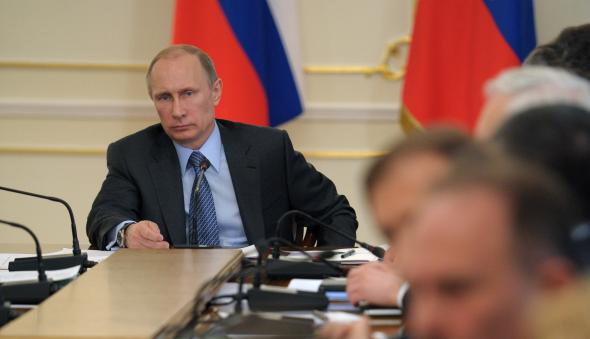There have been high moments: Bill Clinton and Boris Yeltsin, locked in a bear hug; George W. Bush looking into Vladimir Putin’s eyes and seeing “a sense of his soul”; Hillary Clinton pressing the “reset button.” There have been some very low moments, too. But for more than 20 years of Russian independence, a single narrative about Russia in the West has nevertheless prevailed.
Openly or subconsciously, Western leaders have since 1991 acted on the assumption that Russia is a flawed Western country. Perhaps during the Soviet years it had become different, even deformed. But sooner or later, the land of Tolstoy and Dostoevsky, the home of classical ballet, would join what Mikhail Gorbachev, the last Soviet leader, so movingly called “our common European home.”
In the 1990s, many people thought Russian progress toward that home simply required new policies: With the right economic reforms, Russians will sooner or later become like us. Others though that if Russia joined the Council of Europe, and if we turned the G-7 into the G-8, then sooner or later Russia would absorb Western values. Such privileges were never even extended to China, which is a far greater economic and political power. This is because we’ve never believed that China would be “Western.” But deep down we believed that Russia would someday join our club.
Still others thought that Russia’s forward progress required a certain kind of Western language, a better dialogue. When the relationship deteriorated, President Bush blamed President Clinton. President Obama blamed President Bush. And all of us blamed ourselves. Back in 1999, the New York Times Magazine ran a cover story titled “Who Lost Russia?” Much-discussed at the time, it argued that we’d lost Russia “because we pursued agendas that were hopelessly wrong for Russia” and gave bad economic advice. Last week, a former U.S. ambassador to Moscow Jack Matlock, echoed Putin and argued that the United States, by “treating Russia like a loser,” is responsible for the current crisis.
These arguments are self-serving: Russian politics has never been “all about us.” In truth, we’ve had very little influence on Russian internal politics since 1991, even when we’ve understood them. The most important changes—the massive transfer of oil and gas from the state to the oligarchs, the return to power of men formed by the KGB, the elimination of free press and political opposition—took place against our advice. The most important military decisions—the invasions of Chechnya and Georgia—met with our protests. Though many appear to believe otherwise, the invasion of Crimea was not primarily intended to provoke the West either. As one astute Russian commentator has noted, the most important lines in Putin’s annexation speech this week were largely overlooked: his reference to the “fifth columnists” and the Western-funded Russian “traitors” who will now have to be silenced. Putin invaded Crimea because Putin needs a war. In a time of slower growth, and with a more restive middle class, he may need some more wars, too. This time, it’s really not about us.
But because Crimea is so close to Europe, and because Putin’s new ethnic-nationalist language contains so many echoes of Europe’s bloody past, the Crimean invasion might have a bigger effect on the West than even he intended. In many European capitals, the Crimean events have been a real jolt. For the first time, many are beginning to understand that the narrative is wrong: Russia is not a flawed Western power. Russia is an anti-Western power with a different, darker vision of global politics. The sanctions lists published in Europe this week were laughably short, but the fact that they appeared at all reflects this sea change. For 20 years, nobody has thought about how to “contain” Russia. Now they will.
In any case, even the new and longer U.S. sanctions list is only a signal. Far more important, now, are the deeper strategic changes that should flow from our new understanding of Russia. We need to reimagine NATO, to move its forces from Germany to the alliance’s eastern borders. We need to re-examine the presence of Russian money in international financial markets, given that so much “private” Russian money is in fact controlled by the state. We need to look again at our tax shelters and money-laundering laws, given that Russia uses corruption as a tool of foreign policy. Above all we need to examine the West’s energy strategy, given that Russia’s oil and gas assets are also used to manipulate European politics and politicians, and find ways to reduce our dependence.
All of this will take time, and for some it may be too late. In Kiev, Ukraine, last week, I met young Ukrainians who were heartbreakingly enthusiastic about the idea that they might, someday, live in a different kind of country. I didn’t have the heart to tell them that I didn’t know if they ever would.
